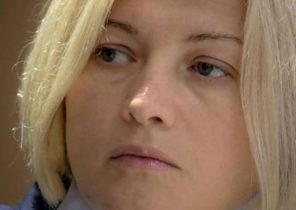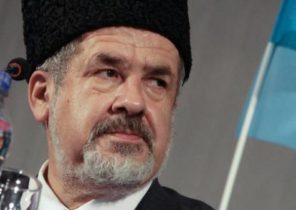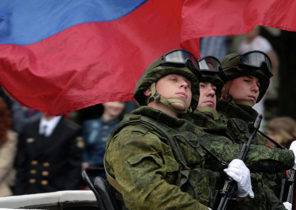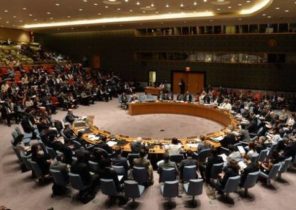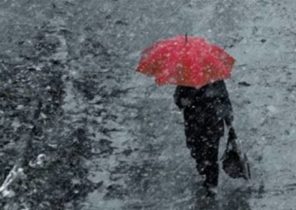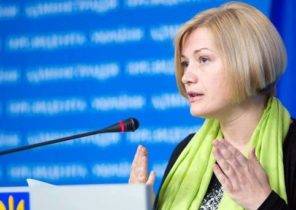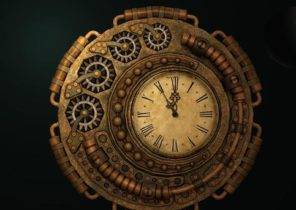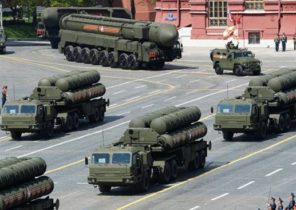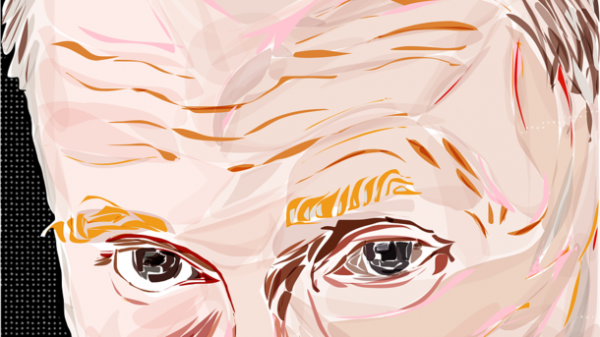
During the reign of Russian President Vladimir Putin in Russia was consistently recovered elements of Soviet Imperial model. This model was built and the Putin regime. This is stated in the analytical report of the research Center of the Russian Federation the National Institute for strategic studies. However, the viability of this mechanism was achieved in a much smaller scale system than the Soviet Union, experts say. Moreover, the Russian model is almost no domestic reserves of stability, and to maintain its viability, it can only be a favourable external environment.
The essence of the Putin regime – the restoration of the attributes of the Soviet Union
“Putin’s Russia is the same Soviet Union, only one that uses all its resources to smaller public buildings and to maintain a smaller number of functions. This reduction needs helped to restore the livelihoods of the mechanism that led to the effect of “successful Putin,” according to the report.
The model established in the years of Putin’s rule, combines the vertical administrative system, exaggerated the role of power structures and the overall militarization of society, resource rents as the main source of income, paternalistic society, information provided and ideologically sound-isolation.
Due to the fact that the essence of Putin’s project is the restoration of the attributes of the Soviet Union, it should include the return of control over the former Soviet Union, the restoration of the status of a superstate and the main antagonist of the West and the monopoly of power in Russia.
However, for the Russian state itself, these attributes are destructive, because they negate the effect of “reduced USSR” and deprive him of a chance at renewal and development, the researchers said.
However, the current problem in Russia is the limited resource. So, that got “inherited”, not enough on the functioning of the “whole of the USSR”, in a real confrontation with the United States and NATO, on the maintenance of the Russian presence in key regions of the world and to other tasks, including ideological. A new resource of Russia could not be established. Moreover, the resource that currently has Russia, may soon not be enough even for the normal functioning of the country. The country’s leadership understands this perspective, but trying to avoid repeating the collapse of the Soviet Union with the help of a demonstrative confrontation and the policy of “crackdown”. Thus, the Russian government is provoking crises and the creation of zones of instability and within the country – the strengthening of mutual responsibility, build a rigid vertical of power and the monopolization of resources.
A return to Soviet social behaviour, ideological cliches, informational restrictions and state paternalism in Russia is subject to public consensus and does not leave in the current circumstances, the chances of the liberal opposition and its proposed values and cultural contents
“Putin’s regime implements an alternative scenario of evolution of the Soviet system, the purpose of which is to prevent its collapse. An additional motivation for Russian companies to support such a scenario is social fatigue and negative reaction to the experience of liberalization, – say the authors of the report – a Return to Soviet social behaviour, ideological cliches, informational restrictions and state paternalism in Russia is subject to public consensus and does not leave in the current circumstances, the chances of the liberal opposition and its proposed values and cultural content.”
The weak point of Putin’s project remains unbalanced economic model, vulnerable with respect to external markets, the archaic organization of society and isolating the collective consciousness of the Russians, who now protects the regime from domestic threats, but in the long term threatens the moral and cultural bankruptcy.
“Rivalry with the West and the reintegration of post-Soviet space was largely declarative, and symbolic elements of Russian policy, which should ensure the credibility of the project of Imperial revenge, but actually does not match either the capacity nor the real needs of the Putin regime. Its incompatibility with the dominance of the West in world politics is obvious, but the potential loss of Russia from destroying the entire system of balances and principles of the world order prevailing in today, exceeds any expected “geopolitical prize”, – the report says.
The policy of the Kremlin can shift to a form of imitation
Foreign policy demarche and political mobilization of Russia was held at the peak of resource capabilities of the Putin regime and in the most favorable period of the deployment of the global crisis and the attenuation of counterparties. However, reality has shown the unwillingness of the Kremlin to carry out the declared policy of the Imperial revenge and a high probability of collapse or transition in the simulation form, the researchers note.
In the sphere of political declarations and imitations Russia is trying to respond symmetrically to the initiatives of advanced countries. Imitation of Western ideas leads to a declarative formation of a “common economic and bezopasnosti space” that actually acts as the cover of Imperial revenge in the former Soviet Union and attempt to influence policies of countries in Europe.
So, Russia created the Eurasian economic Union as an alternative to the EU and the Treaty Organization of collective security as an alternative to NATO’s function as approval of Russia’s interests. According to the authors of the study, they were created to legitimize the Russian economic and bezopasnosti control its members and to increase its weight in the interaction with geopolitical partners in the East and the West. However, since Russia could not and can not offer competitive European projects for neighbours and partners, membership in the integration of the Russian structures to retain only those States that do not have the capacity to conduct independent of Moscow’s foreign and economic policy, according to the report.
The consequences of the actions of the Kremlin
As the researchers note, in the long term, the real consequences of the current actions of the Kremlin have become increasingly prominent. We are talking about ousting Russia from the oil and gas markets, reducing the budget revenues, the deepening of structural imbalances in the Russian economy, the formation of hostile coalitions, the growth of the geopolitical dependence of Russia from partners (China, Turkey, Iran), the gap in the welfare of the elite and the masses, to discredit the ideas of “Russian world”, the radicalization of Muslim communities , etc.
The possibility of Russian leaders to resist this boil down to two scenarios – continuation of the aggressive line in foreign policy, blackmail and pressure on partners, a new provocation and a violation of norms and agreements; – isolation of the regime in defense position. Both of these scenarios provide the rigid model of internal policy of the Kremlin, in which methods of intimidation will be used more often than methods of promotion.
According to the authors of the study, we should expect a certain stabilization of Russia’s foreign policy and its turn toward the “peacefulness”, declared Putin at the final press conference in 2016.
The Kremlin will try to keep the levers of crisis management, puppet regimes “LC” / “DNR” on the border with Ukraine and influence on the political situation in the neighboring country, military presence in Syria. Possible extension of the military presence of Russia in the world. In particular, the most likely areas for such expansion are resource-rich and strategically important regions: the middle East and North Africa, and the Arctic
“The Kremlin will try to keep the levers of crisis management, puppet regimes “LC” / “DNR” on the border with Ukraine and influence on the political situation in the neighboring country, military presence in Syria. Possible extension of the military presence of Russia in the world. In particular, the most likely areas for such expansion are resource-rich and strategically important regions: the middle East and North Africa, and the Arctic, the report says, – In Russia in 2017 will be marked primarily by the preparation for the presidential elections, which must become an act of legitimation, Putin not only as the President of the Russian Federation, and as a recognized leader of the nation whose authority and status go beyond the official posts.”
In Russia in 2017 will be marked primarily by the preparation for the presidential elections, which must become an act of legitimation, Putin not only as the President of the Russian Federation, and as a recognized leader of the nation whose authority and status go beyond the official posts
However, as the researchers note, in the case of Putin’s reelection, he and his team will retain a monopoly on power, justifying this by the need to counter threats to “the unstable and threatening outside world” and to prevent internal destabilization. In addition, increase the isolationism of the Russian society, which cultivated the cult of the leader.
Under these conditions in Russia increase the threat of internal destabilization of the regime and losing their public legitimacy. Risk factors is the conflict of the Russian elite, ethnic and religious heterogeneity of the country, reduction of resource base of major groups of beneficiaries of existing policies, the critical dependence of many social groups from funding their vital needs of state, regional or local budgets. According to the authors of the report, this leads to the fact that the first signs of the crisis, the collapse of social and governmental system of Russia can be immediate and widespread.
To provoke the crisis is a departure from Putin’s power or, on the contrary, its lifetime status, conflict within the elite, for example, the security forces and the Russian Orthodox Church against the “Chechens”, the emergence of a strong political alternative in the form of Russian nationalists, the escalation of the conflicts on the territory of the Russian Federation or on its borders, the sharp deterioration of the socio-economic situation, foreign policy or military defeat (or isolation), etc.
As the researchers note, the Russian model is almost no domestic reserves of stability, and to maintain its viability, it can only be a favourable external environment.
